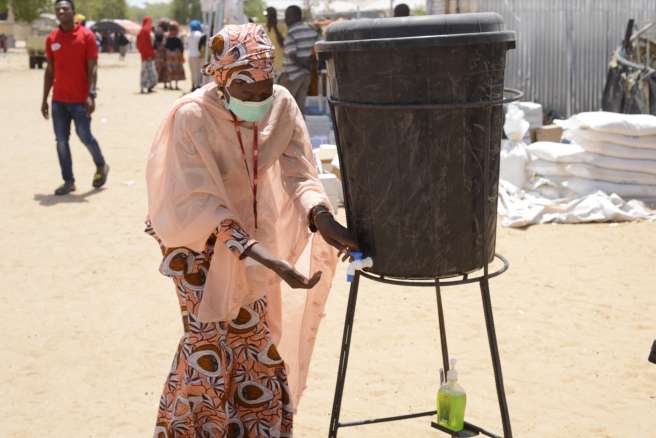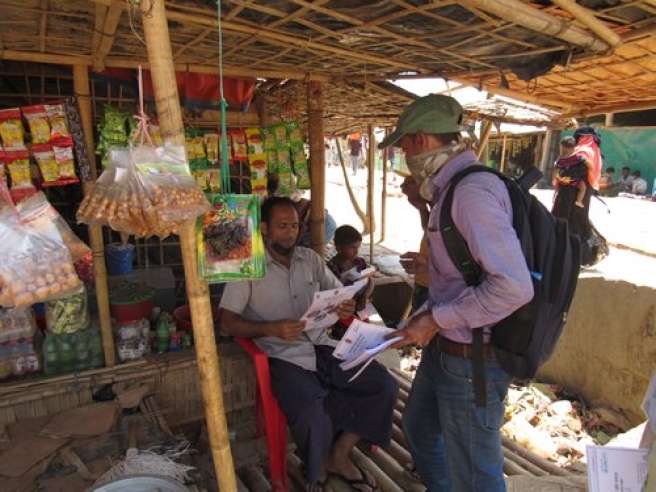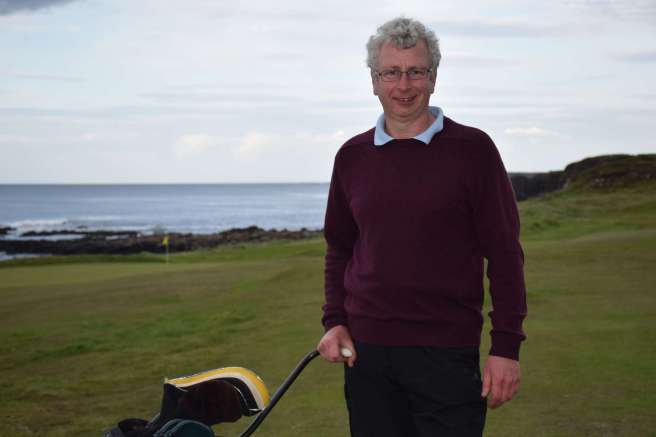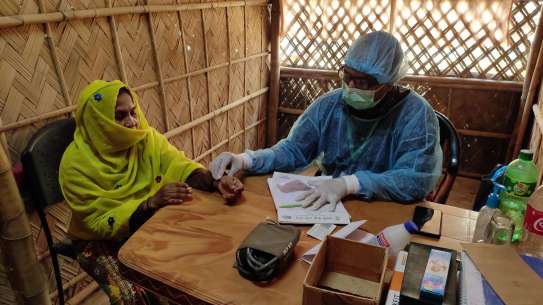Misinformation about coronavirus is spreading right across the world and is a real risk to public health. Read how Christian Aid is working to ensure that people in some of the world’s poorest countries have the information they need to help reduce the risk of coronavirus to themselves and others.
‘Injecting disinfectant into the body might kill coronavirus’, ‘coronavirus only affects white people’; ginger, garlic and even alcohol can ‘prevent or cure coronavirus’. These are just some of the myths that are circulating about coronavirus in countries around the world at the moment. While easy on the face of it to dismiss these perceptions of coronavirus, they are taken at face value as being facts in the absence of accurate and reliable information about the virus.
Misinformation about coronavirus is a risk to everyone’s health. Christian Aid is responding to coronavirus in at least 24 countries and a lot of our work is focussed around building awareness of coronavirus and providing people with reliable information to tackle myths and enable them to take preventative steps to reduce the risk to both themselves and others of catching the virus.
Here is a snapshot of some of the ways Christian Aid is helping to make sure that the people we support in some of the world’s poorest countries have the facts about coronavirus and know what they need to do in order to keep safe and prevent the spread of the disease.
Nigeria

With many of the world’s poorest countries seeing the rate of infection increase substantially in recent weeks, having accurate information about coronavirus is more vital than ever. In Nigeria, where over 26,000 cases have been confirmed as of early July, the number of confirmed cases has been rising nearly twice as fast as the global average.
For some of the many thousands of displaced people that Christian Aid support in Borno State, North East Nigeria, fake news about coronavirus is proving a real problem. Christian Aid has heard how some of the people living in displacement camps believe that coronavirus is a sickness of the rich, which you cannot catch if you are poor while others believe that the virus is just a scam and isn’t real.
Such beliefs are particularly concerning given the heightened risk of these refugees catching coronavirus due to the conditions they live in and their comparatively poorer health. Many families all live together in single-roomed tents, making it very difficult to keep a safe distance from each other, especially given the large size of most families. Within the camps many people’s immune systems have already been weakened by disease including pneumonia, malaria and HIV and there are also high rates of people suffering from meningitis, diarrhoea and high-blood pressure, all of which leave them even more susceptible to catching coronavirus.
With support from UK Aid through the UK government, Christian Aid is raising awareness about coronavirus in Borno State, Kaduna State and Benue State through radio ads which have been created in eight local languages and provide information about the virus and the preventative steps that people can take to reduce the risk to both themselves and others of catching the virus. These radio ads should reach six million people.
Also in Borno State, Christian Aid is working with local partners to create a WhatsApp and Facebook campaign in local languages about the importance of regular handwashing, physical distancing and not passing on fake news to prevent the spread of coronavirus and will also be passing these messages to the local community via traditional leaders.
Cox’s Bazar, Bangladesh

Bangladesh has been particularly badly hit by the pandemic, with over 149,000 cases by early July. It has long been feared that it was only a matter of time that cases of coronavirus would present within the Rohingya refugee camps of Cox’s Bazar, and as of early July at least 49 people had been infected with the virus within the camps and over 2,500 people in the nearby town of Cox’s Bazar.
Home to over 850,0000 people, a widespread outbreak of coronavirus in the camps would be catastrophic. Physical distancing is not possible due to the crowded conditions and a third of households do not have soap or regular access to water. Access to healthcare is poor, with 80% of households reporting that at least one member of their family already has a serious illness.
There is a real risk that misinformation about coronavirus could contribute to the spread of coronavirus within the camps. It could prevent people who have symptoms from seeking medical care or lead to families concealing sick family members for fear of being stigmatised.
In an effort to counter this, Christian Aid have worked with local partners to ensure that people living in the camps have clear and reliable information about coronavirus. With local partners, we have developed a fake news tracking sheet and shared this with doctors working in health facilities to help reduce panic surrounding coronavirus. We have also worked with partners to raise awareness about the need for handwashing and physical distancing to prevent the spread of coronavirus. These health messages are being passed on by Rohingya religious leaders in mosques, and in waiting rooms at health-centres and community centres, as well as via posters and megaphone announcements.
Working with local partner’s, Christian Aid has also conducted door to door awareness raising as well as small group sessions on hand hygiene, ‘considerate’ coughing and the importance of physical distancing, reaching almost 30,000 people with these coronavirus health messages, of which 3,000 were children, many of whom also took part in handwashing sessions.
Nepal
Image credits and information

In Nepal, coronavirus cases were rising rapidly and by early July over 14,000 peopled had the diseaseWithin Nepal, radio is the primary source of information for many communities, especially for those living in rural areas. In six districts across the country, Christian Aid has been using public service announcements to tackle coronavirus myths, which are being broadcasted six times a day through 10 local radio stations. Each announcement is being broadcast in Nepali and two local languages, Tharu and Tamang. These same messages are also appearing on five local online news websites. Weekly radio programmes are also being hosted on six radio stations where communities can ring in with their concerns and questions about the virus.
Myanmar
With funding from Irish Aid, Christian Aid’s local partners in Northern Shan and Rakhine states been working to prevent the spread of coronavirus and have distributed soap to over 30,000 people as well as demonstrated thorough handwashing techniques and shared information on considerate coughing and the need for returning family members to self-quarantine for 14 days.
Fear has meant some communities have refused to accept returning migrants into their villages, despite their stay in quarantine centres. This has meant some migrants have had to to remain outside of their villages, which leaves women and girls particularly at risk.
Our local partner will be tackling stigma around coronavirus through awareness sessions as well as handing out printed materials with information on preventing violence against women and girls and sharing contact details for support services.
Please donate to the Coronavirus Emergency Appeal today
